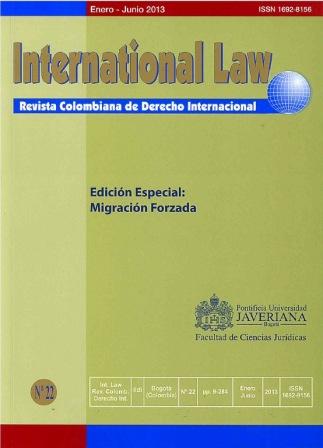Disregarded Effect of Court Ruling T/025 of 2004: on the Need of a Qualitative Approach to the Situation of Displaced Populations
##plugins.themes.bootstrap3.article.details##
Most of the analyses on court ruling T/025 of 2004 have been centred on the conditions necessary to overcome the unconstitutional state of things regarding
the situation of displaced people. In this sense, attention has been focused on the ruling s direct and indirect effects on institutions, and on improving their capacity to fulfil the rights of displaced people. Nevertheless, this type of studies has overlooked the day-to-day implementation of the measures set by the Government in order to comply with the judicial orders included in the ruling. For this reason, the present paper presents the results of a field research carried out in the neighbourhoods of Bosa and Soacha (in Cundinamarca, Colombia) where displaced and host populations coexist. These reveal a series of disregarded effects in the daily lives of these people resulting from the execution of forced displacement public policies.
Desplazamiento forzado, política pública, desplazados por la violencia, investigación cualitativa, recurso de inconstitucionalidad, desplazamiento forzado, métodos cualitativos de investigación, estado de cosas inconstitucionalForced migration, public policy, displaced by the violence, qualitative methods (Research), judicial review, Forced Displacement, Public Policy, Qualitative Research Methods, Unconstitutionality


